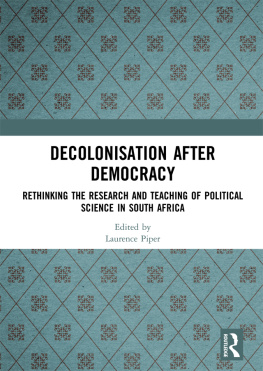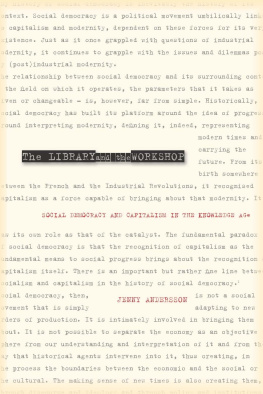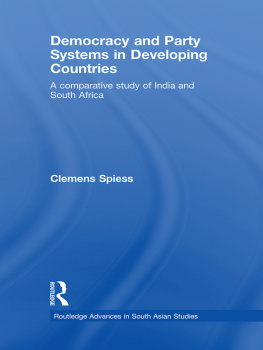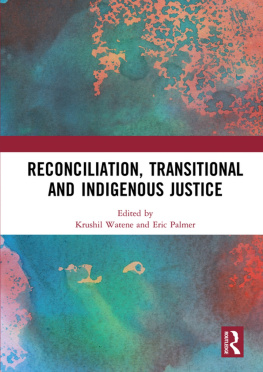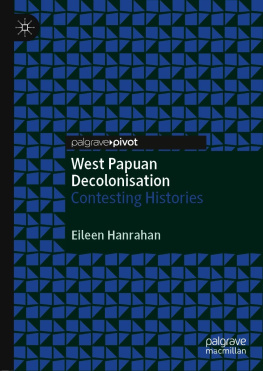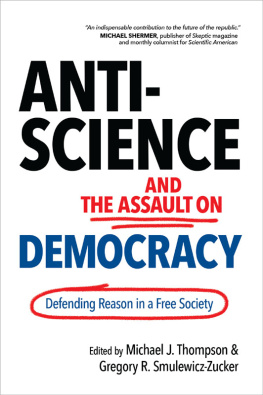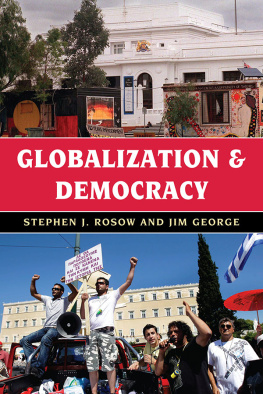Decolonisation after Democracy
Decolonisation after Democracy addresses the provocative idea that we need to rid higher education of lingering forms of colonial knowledge. This matters because in the colonial era much knowledge was put to the service of subjugating indigenous peoples, and the assumptions from this era may linger into the present. Examples of deep-rooted and foundational forms of knowledge that carry colonial traits are normative binaries such as civilised and backward, modern and traditional and rational and superstitious. In addition, some accounts of positive values like freedom, equality, justice and democracy may hide the assumption that the western experience is the norm, from which other kinds are rendered imitations, deviations or pathologies.
In this collection, some of South Africas leading political scientists and academics engage with the challenge of decolonising knowledge in the research and teaching of politics. It includes new insights about the state, international relations, clientelism, state-society relations and land reform; and introduces new ways to engage the colonial library, curriculum reform, and the marginality of historically black institutions. Finally, the contributors deal with the decolonial challenge posed by the #FeesMustFall student movements, reflecting on issues of revolutionary politics and gender and sexual violence.
This book was originally published as a special issue of Politikon.
Laurence Piper is Professor of Political Science at the University of the Western Cape, South Africa, and the University West, Sweden. His research focus is on urban politics in the Global South.
Decolonisation after Democracy
Rethinking the Research and Teaching of Political Science in South Africa
Edited by
LaurencePiper
First published 2019
by Routledge
2 Park Square, Milton Park, Abingdon, Oxon, OX14 4RN, UK
and by Routledge
52 Vanderbilt Avenue, New York, NY 10017, USA
Routledge is an imprint of the Taylor & Francis Group, an informa business
2019 South African Association of Political Studies
All rights reserved. No part of this book may be reprinted or reproduced or utilised in any form or by any electronic, mechanical, or other means, now known or hereafter invented, including photocopying and recording, or in any information storage or retrieval system, without permission in writing from the publishers.
Trademark notice: Product or corporate names may be trademarks or registered trademarks, and are used only for identification and explanation without intent to infringe.
British Library Cataloguing in Publication Data
A catalogue record for this book is available from the British Library
ISBN 13: 978-1-138-35086-1
Typeset in Myriad Pro
by RefineCatch Limited, Bungay, Suffolk
Publisher's Note
The publisher accepts responsibility for any inconsistencies that may have arisen during the conversion of this book from journal articles to book chapters, namely the possible inclusion of journal terminology.
Disclaimer
Every effort has been made to contact copyright holders for their permission to reprint material in this book. The publishers would be grateful to hear from any copyright holder who is not here acknowledged and will undertake to rectify any errors or omissions in future editions of this book.
The chapters in this book were originally published in the journal Politikon, volume 45, issue 1 (April 2018). When citing this material, please use the original page numbering for each article, as follows:
Editorial
Editorial
Laurence Piper
Politikon, volume 45, issue 1 (April 2018), pp. 12
Chapter 1
#EndRapeCulture Campaign in South Africa: Resisting Sexual Violence Through Protest and the Politics of Experience
Amanda Gouws
Politikon, volume 45, issue 1 (April 2018), pp. 315
Chapter 2
Decolonising International Relations and Its Theory: A Critical Conceptual Meditation
Siphamandla Zondi
Politikon, volume 45, issue 1 (April 2018), pp. 1631
Chapter 3
Thinking the State from Africa: Political Theory, Eurocentrism and Concrete Politics
Suren Pillay
Politikon, volume 45, issue 1 (April 2018), pp. 3247
Chapter 4
Confronting the Colonial Library: Teaching Political Studies Amidst Calls for a Decolonised Curriculum
Sally Matthews
Politikon, volume 45, issue 1 (April 2018), pp. 4865
Chapter 5
What Would the Decolonisation of a Political Science Curriculum Entail? Lessons to be Learnt From the East African Experience at the Federal University of East Africa
Bheki R. Mngomezulu and Sakhile Hadebe
Politikon, volume 45, issue 1 (April 2018), pp. 6680
Chapter 6
The Need for a New Language? How Historically Disadvantaged Institutions Grapple with the Effects of Labelling in Higher Education: The Case of the University of the Western Cape
Cherrel Africa and Shingai Mutizwa-Mangiza
Politikon, volume 45, issue 1 (April 2018), pp. 8193
Chapter 7
Decolonising Clientelism: Re-centring Analyses of Local StateSociety Relations in South Africa
Fiona Anciano
Politikon, volume 45, issue 1 (April 2018), pp. 94111
Chapter 8
On Decolonisation and Revolution: A Kristevan Reading on the Hashtags Student Movements and Fallism
Joleen Steyn Kotze
Politikon, volume 45, issue 1 (April 2018), pp. 112127
Chapter 9
Land Redistribution in South Africa: Towards Decolonisation or Recolonisation?
Thembela Kepe and Ruth Hall
Politikon, volume 45, issue 1 (April 2018), pp. 128137
For any permission-related enquiries please visit:
http://www.tandfonline.com/page/help/permissions
Cherrel Africa is an Associate Professor in the Department of Political Studies at the University of the Western Cape, South Africa. She has a wide range of content interests including South African politics, democracy and governance, elections and election campaigns, and political communication.
Fiona Anciano is a Social Science Researcher with a broad interest in democratization, civil society, and political parties. She is a Senior Lecturer at the University of the Western Cape, South Africa, and a Senior Research Associate at the Centre for the Study of Democracy, University of Johannesburg, South Africa.
Amanda Gouws is Professor of Political Science, and holds a SARChi Chair in Gender Politics in the Department of Political Science, Stellenbosch University, South Africa. Her fields of specialism are South African Politics, Gender Politics, and Political Behavior.
Sakhile Hadebe is a Lecturer at the University of KwaZulu-Natal (Howard College), Durban, South Africa. His research interests include International Humanitarian Intervention and South Africas Foreign Policy.
Ruth Hall is a Professor at the Institute for Poverty, Land and Agrarian Studies, University of the Western Cape, South Africa. Key research interests that have shaped her work at PLAAS are: land tenure, restitution and redistribution, gender and development policy, and broad-based agricultural development.

